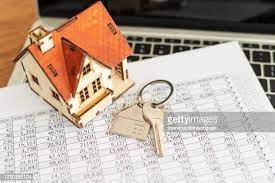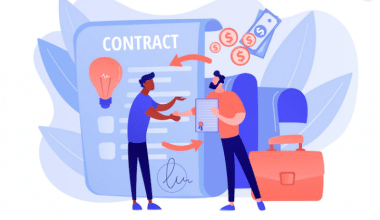It could be more difficult to acquire land loans than conventional mortgages because they are used to purchase property without a house on it. You might need a land loan to make it happen, whether you’re planning to build your ideal home or buy a new location for your business.
So often, when people are seeking to purchase a property, they can also think about building one. Prior to realizing how much a house may cost to build, the idea might seem ideal. Even though it can be expensive to build a house, there are numerous ways to reduce the cost so that first-time homeowners can afford it. One of these options is land loans.
You might need to apply for a land loan if you decide to build a home. Although mortgaging does not provide land loans or lot loans, we recognize the value of educating our clients and can steer you toward the ideal lot for your future house.
Land Financing
Land financing is a loan taken out in order to buy land. Loans for land are not all created equal, though. The three categories of land loans that are relevant are raw, unimproved, and improved. A land loan, also known as a lot loan, is used to fund (finance) the acquisition of a piece of land. You can take out a land loan if you’re interested in buying a piece of land to build a home or to exploit for business purposes. The type you choose will depend on where you want to acquire land and how you’ll use it.
A land loan (financing), compared to a regular mortgage, is often a more complicated sort of borrowing. For starters, if there is no house to provide as collateral for the land loan, and you can’t purchase land with no down payment, in order to promote various uses for a property lot, there are also numerous distinct sorts of land loans.
Kinds of Land Home Financing
Luckily, there is a wide range of land loan options, which means you can find the perfect fit. Here are some of the most common land loan types:
Bank or credit union loans: local banks and credit unions sometimes offer land loans where national banks do not.
Borrow against the equity in your home: Does your present house have a sizable amount of equity? You can access this value with a home equity loan and use the money for a land purchase. But keep in mind that making this choice could endanger your main residence.
Owner finance: this is an option that the party selling the land may offer. In this case, you would pay the seller a predetermined amount over time. Occasionally, the term “seller financing” is used.
Land Home Financing
Once you’ve bought the land, you can now start to design what you’d like to build on it. Whether you’re building a house for yourself or a business, there are many different ways for land home financing or funding the project. This simply means the activity of providing money for people to buy property.
Most individuals consider owning a home to be one of the most important and expensive endeavors they will ever undertake. The buyer must put in a lot of effort to give such a dream home life, and the only way to fit the home into their budget is by taking out a home loan.
A person will often borrow money from banks and other lending organizations for their home or other housing needs. The borrower must pay back the loan total and interest in Easy Monthly Instalments, or EMIs, throughout the course of the loan’s terms, which can range from 10 to 30 years.
Data statistics showing some of the best home loans in India
Bank name: Home Loan SBI
Inflation Rate: 8.05%-8.55%
Processor Charges: a maximum of INR 10,000 Plus GST and 0.35 percent of the loan amount.
Bank name: HDFC Home Loan
Inflation rate: 8.60% – 9.50%
Processor Charges: Up to INR 3,000 or 0.50% of the loan amount
Bank name: House Loan by Axis Bank
Inflation rate: 7.60% – 8.05%
Processor charges: Up to 1% of the loan amount, however, but no more than INR 10,000 minimum.
Bank name: ICICI Mortgage
Inflation rate: 8.40% – 9.45%
The processing charge up front of INR 2,500 plus GST.
Owner Land Financing
Owner financing is comparable to traditional home financing with the exception that the owner of the property directly supplies the buyer with full or (more typically) partial financing as opposed to a bank or other mortgage lender. Buyers who aren’t qualified for a loan from a mortgage lender or who only qualify for a portion of the purchase price may benefit from an owner-financed loan. In the latter case, the buyer might be able to acquire conventional financing up to the amount the lender approves.
In the majority of owner-land financing contracts, the owner (seller) registers a mortgage against the asset, which is then transferred to the buyer via deed. A land contract structure, which will be discussed further below, is one version in which the owner of the property keeps the title as leverage until the loan is repaid.
The owner typically permits the buyer to take over and move into the house without a mortgage but after the buyer makes a down payment.
Mobile Home Land Financing
Before being transported to a property for setup, a mobile home is constructed in a factory. It might or might not substitute metal tie-downs for a conventional base. But this justification also stands true for manufactured dwellings.
The next step is to find out how to pay for your mobile home land after choosing its features and a location for it. Financing options for mobile homes include a few different possibilities. It is possible to obtain a loan from the same sources as conventional mortgages, like FHA and VA loans.
You often have longer payback terms with these mobile home financing alternatives. Based on your circumstances, you can decide to take a less common route with a shorter time. This might apply to personal debts or chattel.
Steps To Getting Mobile Home Land-Financing
You should first take a few measures if you’re wondering how to purchase a mobile home and get the finest financing.
#1. Verify Your Credit History
Every time you apply for financing of any kind, a lender will take your credit into account. Receiving better rates and terms from lenders is made simpler by having a clean credit history and strong credit ratings. If you examine your credit reports and discover errors, you can dispute them with the relevant credit agency, such as Experian, TransUnion, or Equifax.
#2. Choose Whether You Want to Purchase Land with the Mobile Home
It is less probable that you will pick up and relocate if you own the land and your mobile home’s frame and legs have been taken off. This might encourage more lending organizations to consider funding a mobile home.
#3. Begin Your Search for Funding Options
Select the loan type you’ll employ, then compare the offers from several lenders. Take the time to compare lenders as mobile home interest rates, manufactured house loan rates, and costs might differ significantly between them. In order to pay as little as possible over the course of the loan, look for loans with low fees and interest rates.
By doing your homework and comparing prices, you can avoid paying thousands of dollars in interest and get better loan conditions. Also, looking into financing possibilities beforehand will assist guarantee that a loan is available to support your buy.
#4. Fill out a Loan application
You should make sure that your application is as thorough and transparent as you can make it. Also, a lot of lenders demand a down payment, so be ready to pay one when you submit your applications. It increases your chances of being accepted, and the application process will run more easily if you can submit a thorough application.
The critical point is to be ready to finance a mobile or manufactured home. By doing this, you speed up the process and increase your chances of getting the greatest rate and most advantageous conditions.
What Is Land Finance?
A land loan or finance is used to finance real estate without a home already on it. There are various types of land, and the one you choose will probably affect the kind of loan you qualify for:
Raw land. This is unimproved land that cannot be developed due to the lack of utilities including roads, water, and sewer lines.
undeveloped land. Unimproved land may have some rudimentary infrastructure or older buildings, but unlike bare land, it typically lacks all the water, electricity, and other amenities you’ll require.
What Is the Longest Loan You Can Get for a Land?
In contrast to the conventional 15- and 30-year periods offered on a home mortgage, land loans are frequently short-term, two to five-year loans with a rising payment. In unique circumstances, particularly if you intend to use the land to construct a home, additional durations are available.
How To Get a Loan Using Land as a Collateral
If you need to get a secured loan, land might be a potent type of collateral. You might have to put up as much as a piece of property as collateral for the loan you need. This happens depending on the amount you need and your past credit history. Thankfully, putting your land as collateral may be done without too much trouble. You can start the process of converting your real estate holdings into acceptable collateral. This can be done once the value of your land has been determined by a qualified expert.
When seeking to obtain a mortgage, you may be able to use land equity as collateral. In this situation, the land on which you are constructing a new home must be yours. The lender may insist that you totally own the land and have no outstanding debt on it if you use land equity as a down payment.
Many lenders typically require a down payment of 20% of the home’s cost. Some programs may have lower requirements, such as the FHA loan, which has a 3.5% down payment requirement.
Is Plot Loan and Land Loan the Same?
Home loans are available for both ready-to-move-in and under-construction as well as self-built residences. On the other hand, if the land will only be utilized for residential reasons, land loans may be obtained for the purchase of a plot of land.
As the name implies, a land loan or plot loan is a loan given by banks to borrowers for the purchase of a plot of land. Equated Monthly Instalments (EMI) are used for repayment, and the bank specifies a particular duration for each EMI.
What Is the Difference Between Land and Loan?
The land is real estate or landed property; a partitioned or measurable area that is owned and on which buildings can be erected.
A loan is described as something given to another party in exchange for future repayment of the loan value plus interest and other financial charges. It is said to be property, money, or other tangible items. A loan can be obtained as an open-ended line of credit with a set maximum or for a fixed, one-time sum. There are many various types of loans, including unsecured, secured, commercial, and personal loans.
Final Thought
It is considerably more difficult to finance a piece of land on which to construct your dream home than it is to apply for a mortgage. You must verify the zoning, land use limitations, access to utilities, and public highways. Lenders need surveyed boundaries. Your down payment and loan fees will be cheaper the more improved the land is. Seller financing, local lenders, or a home equity loan are the best ways to pay for land acquisition.






